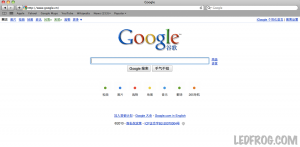Online groups are just as important and functional as groups in real life. They allow people that share common interests to network with each other and share information, opinions and ideas. Finding a group is easy and it’s something that you should always consider when you’re looking for a competitive edge in business.
What are groups?
Lets say you’re in the business of building websites and you’re having a little trouble finding clients or maybe you feel  a little stuck with some of your skills and you need a little help. You could go it alone and spend countless hours scouring the Internet for all the resources you need, but imagine if you belonged to a group other other web designers and maybe a few web hosting providers?
a little stuck with some of your skills and you need a little help. You could go it alone and spend countless hours scouring the Internet for all the resources you need, but imagine if you belonged to a group other other web designers and maybe a few web hosting providers?
You would now have access to countless amounts of free tools and help from people all over the world!
In the days past, web groups were all important for your business to gain that slight advantage and it was hard to find them, but today, groups have kind of taking on a new image.
Social networking has arrived and services like Facebook, LinkedIn, Google Groups and Xing are providing a hybrid experience that incorporates everyday communications and updates with actual business-networking building tools.
Group websites
I have compiled a small list of websites that offer network building tools, user groups and more. This section was not expected to be very large considering the majority of this information will be available later when I begin discussing social networking, but here’s a small list of popular sites.
- LinkedIn – LinkedIn uses a simple premise–connect with former and current colleagues and friends. Once you start building your connections in turn, you gain access to their connections and so forth. The more people you can connect with, the more networking you can do.
- Xing – Xing takes global networking to a new level. They boast over 8 million professionals using their services for managing business contacts. You can even search for new employees for your business, advertise with other companies and use your profile to draw attention to your company.
- Facebook – Although Facebook is mainly a social networking site, it does allow you to create a group for your business. This allows you to promote your services and get your name out there, but in comparison, I’d rather create a fan page. See my next topic for more information.
- Google Groups – This is yet one more service from Google that’s less hyped and promoted compared to everything else they do, but it’s a great tool anyway. You can find a group for just about anything you could want. From what I noticed, the majority of people are using Google Groups to provide tech support and help, but it can still be used as a viable networking site.
Of course, there are plenty more out there, but the general idea is to connect yourself and your website with others in related fields. Before you know it, other people will be linking directly to your site and this will help increase your traffic!
| << Back to Comments | Forward to Fan Pages >> |

